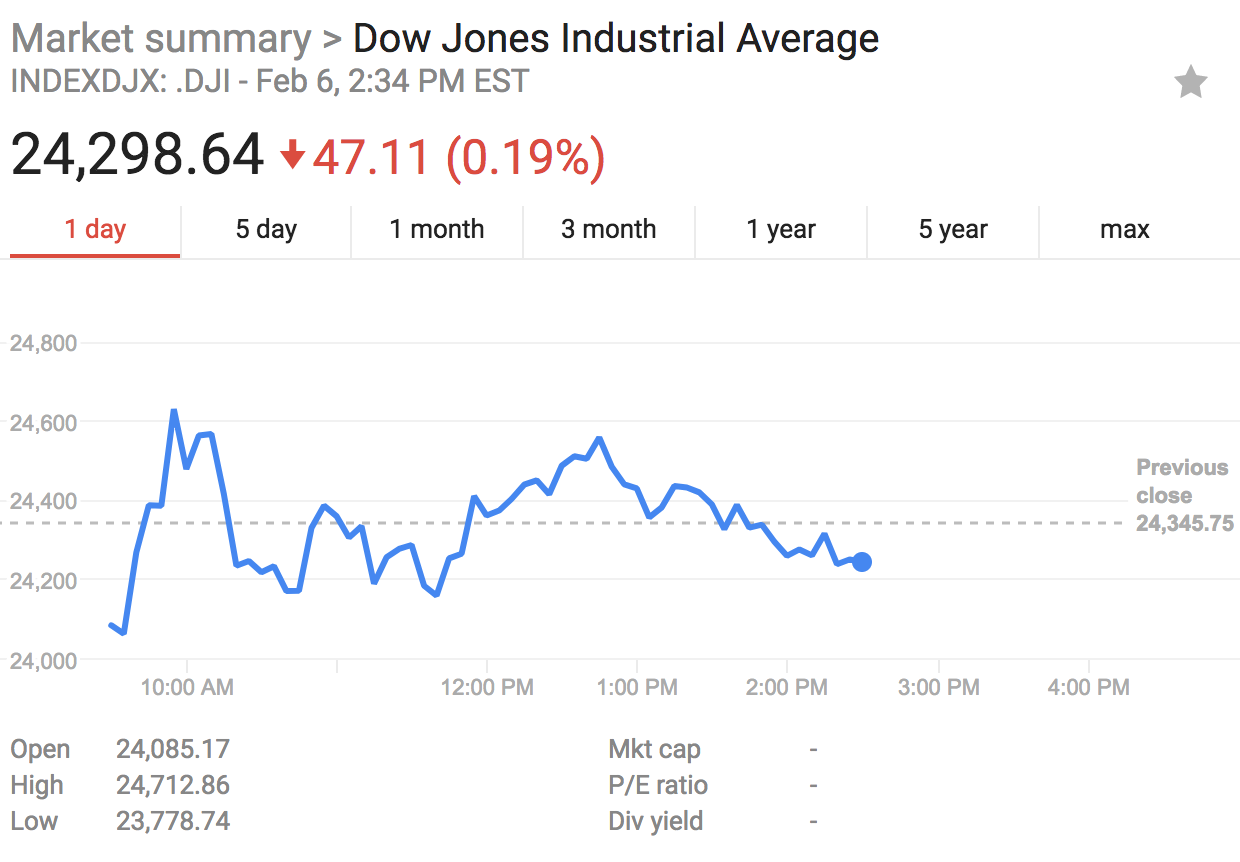The Dow Jones Industrial Average began decreasing Friday, then plummeted on Monday, seeing its biggest point loss in history.
The Dow sank a full 1,175 points Monday, the most points its lost in its history, and erased its gains for the year. And at one point during the day, it was down as much as 1,600 points.
And the chart below from Google Finance shows the Dow continues to slip, and as of 2:34 p.m. ET still lingered lower than Monday’s close.
Click to Enlarge
(Source: Google Finance)
But what does all of this mean for the mortgage lending market? As it turns out, it is not expected to make a significant impact, one expert explained, as the Dow is known for being volatile.
That is, unless the volatility continues over an extended period.
“The types of corrections we are seeing this week in the U.S. stock markets are not expected to negatively impact the housing market unless the current volatility causes the market to significantly fall below normal levels,” realtor.com Senior Economist Joseph Kirchner said. “Despite yesterday's correction, the market is still 15% above a year ago and economic fundamentals remain strong.”
Realtor.com explained that as observers speculate on direction of the market, a recent survey of consumers looking to buy in the next 12 months indicated more than half, 52%, plan to use stock market proceeds to fund at least part of their home purchase.
Of those planning to use stocks, 90% revealed that the recent stock market run up contributed to their decision to use these proceeds. The most common types of stock people are planning to use include stock, mutual funds and retirement accounts.
However, as of 2:39 p.m. ET, the Dow once again rose just above the previous close, and the volatility of the past few days could soon smooth out and its effect on the lending market will be minimal.
If, however, the volatility continues, the Federal Reserve could ease up on its forecasted rate hikes for 2018.
Previously, the market predicted the Fed will raise rates for the first time this year in March, however after Monday’s sell-off, the Fed Funds futures decreased their estimate of a March rate hike from 78% to 69%, according to a note Brent Nyitray, iServe Residential Lending director of capital markets, sent to clients.




